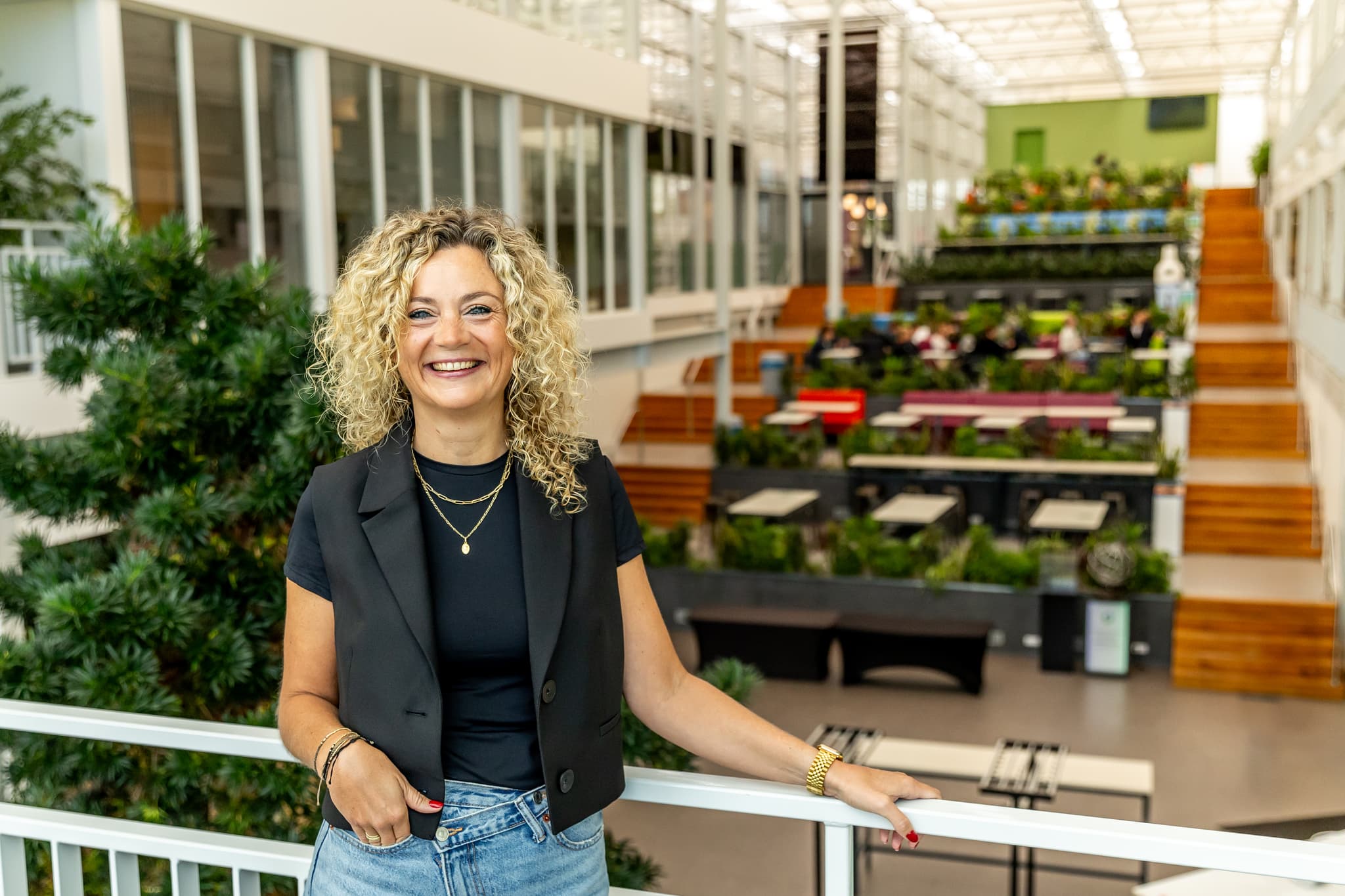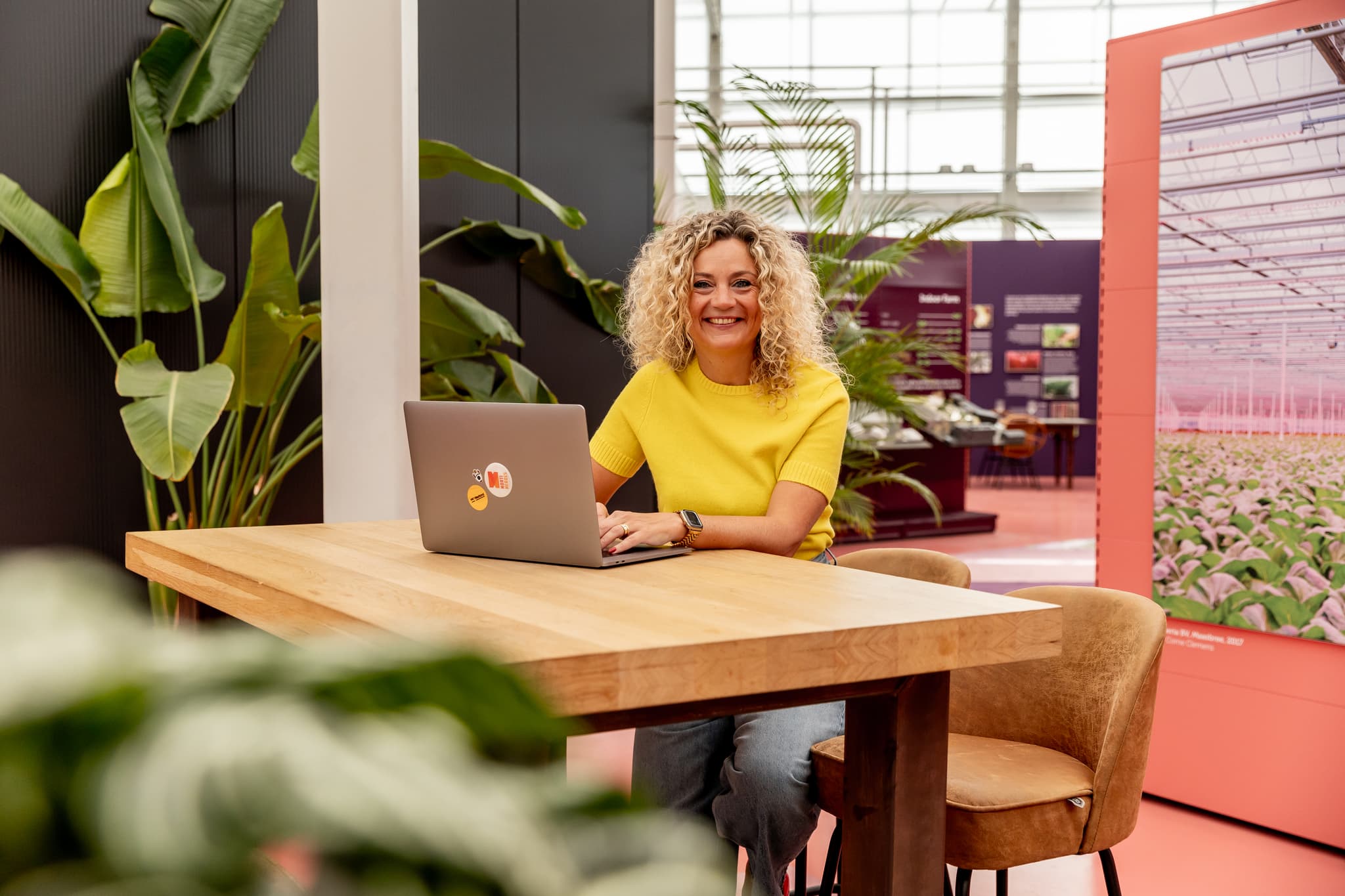New columnist Puck van Holsteijn: 'Horticulture in NL can make huge impact on world food system'
Starting tomorrow, Puck van Holsteijn, director of World Horti Center and HortiHeroes, will give you a peek into the world of horticulture every six weeks.
Published on November 15, 2024

As editor-in-chief, Aafke oversees all content and events but loves writing herself. She makes complex topics accessible and tells the stories behind technology.
Puck van Holsteijn has an in-depth knowledge of horticulture, knows how to tell complex subjects in an accessible and concrete way, and hopes her columns will reach precisely people outside the sector.
'In love with the sector'
For the first 18 years of her career, she worked in the Achterhoek region in a metal production company. Through a client, she ended up in horticulture about four years ago, and by now she wouldn't want anything else. “In the Achterhoek I learned a lot and had a fantastic time, and now I have fallen in love with this sector. Even though these are small steps, we can make a huge impact on this sector from our small country. Together with entrepreneurs, I can make the world a little greener and healthier, Dutch horticulture has an awful lot of potential.”
Puck can be found five days a week at the World Horti Center; a knowledge and innovation center with international prestige in horticulture. She started there in 2021 as director of HortiHeroes and 1.5 years later she became that of World Horti Center (WHC). In that capacity, she works with companies, educational institutions, research centers, and government organizations to strengthen the horticultural sector.
Anyone sitting across from her will notice: that she has a strong vision for the future of horticulture and a focus on collaboration and sustainability. With her columns, she aims not only to show the latest innovations and developments in horticulture but also to provide a realistic picture of the challenges facing the sector.
Approach and perseverance
What has struck her most since her appointment in 2021? “That the people who work here are real go-getters and go-getters. If they commit to something, they take care of it. And there is already quite a lot of cooperation between education, business, research, and government.” Of course - there are also things that could be improved. For example, policy and education should be better aligned with what the business community needs.
That's why on campus they work from different themes - energy, health, water, robotics and AI, and more - and associated theme squares that WHC develops together with entrepreneurs and education (mbo, hbo, wo). ''Our theme squares are a physical landing spot, here you can find all kinds of content about that specific topic, in an interactive way. We also collaborate a lot with all our stakeholders on these squares. For example, on Thursday, November 21, we are organizing the HortiHeroes Hackathon around robotics and AI. During this hackathon, 140 students of different levels, together with professionals, will work on a directly applicable idea for the next step towards a 100% autonomous greenhouse.''
And enthusiastic students are desperately needed because the labor shortage - together with the sustainability transition and the new cultivation processes that come with it - is one of the horticultural sector's biggest challenges. For example, crops are becoming increasingly autonomous and horticulture is in transition in terms of water and energy, this requires different knowledge from employees.

An honest perspective
That Puck does not like to sit still is one thing that is certain. She is a member of the Supervisory Board at Rabobank Westland, an avid skier, recently hiked a four-day hike with girlfriends in Spain, loves to cook and stands along the line every Saturday morning at her son's soccer game.
In her column, she believes it is important to give readers an honest perspective on the horticultural industry. “I think it's important to keep communicating from an honest perspective. So I won't just show the beautiful things, but rather the complexities and challenges our industry faces.”
In doing so, she hopes to reach not only people in the sector itself, but also precisely outside of it. “Precisely from sectors that at first glance have nothing to do with each other, very fruitful collaborations can arise. For example, I am now in talks with a port authority; they are fully committed to biomass, something our sector can perhaps learn from. We are cautiously exploring what we can do together in the field of sustainability. There is certainly a chance that nothing will come of it, but if you don't start the conversation, you never know.”
She would also like to give the stage to startups from her network. There again, these do not always come from horticulture itself, such as Skytree (automotive) and Blockbax (energy), because the sector benefits from many different technological innovations.
Van Holsteijn: ''A greener world with healthy food for everyone. And regional growing in the most sustainable way: that is the impact of the Dutch horticultural sector!''
We will publish Puck van Holsteijn's first column tomorrow.
